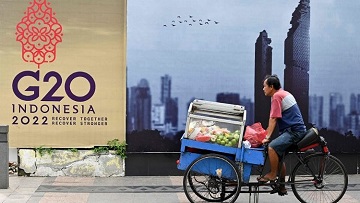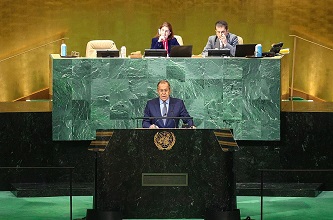The Bali Triangle
Elena Panina (Елена Панина)
Elena Panina, Director of the RusSTRAT Institute, on the outcome of the diplomatic standoff between Russia, the US and China at the G20 summit
We have a tradition of expecting things to change after certain key dates: presidential or parliamentary elections, summits, personal meetings of heads of state. It is advantageous to present this in the media sphere - there is a feeling of sensationalism. This is how journalists are now covering the G20 summit in Bali, commenting as if some informal consensus has been reached between the US, Russia and China on de-escalation of tensions.
The U.S. is in danger of losing global leadership over Russia's EWO in Ukraine and Beijing's hardline stance on the Taiwan issue. The level of the conflict is breaking out of control and no one is ready for an unpredictable change in the status quo. The Russian expert community is actively discussing the alleged agreement of the leading world players to slightly subdue the situation, and to do so in Bali.
In reality, the political configuration is much more complex. For the U.S., the G20 is a place to demonstrate its leadership and an opportunity to change China's intentions. The US believes that it has already shifted the balance of power in its favour: Europe is subdued, US displacement from Taiwan and Ukraine has been averted, internal victory over the Republicans has almost been achieved. Now it is the turn to resolve the issue with the PRC, and to resolve it precisely in conjunction with Russia.
That being said, the U.S. is doing everything in a package, this is the style of American diplomacy. This is why Washington is spreading the thesis that Russia has shown the limit of what is possible and China should not rely on it much, but rather go along with the US position.


























